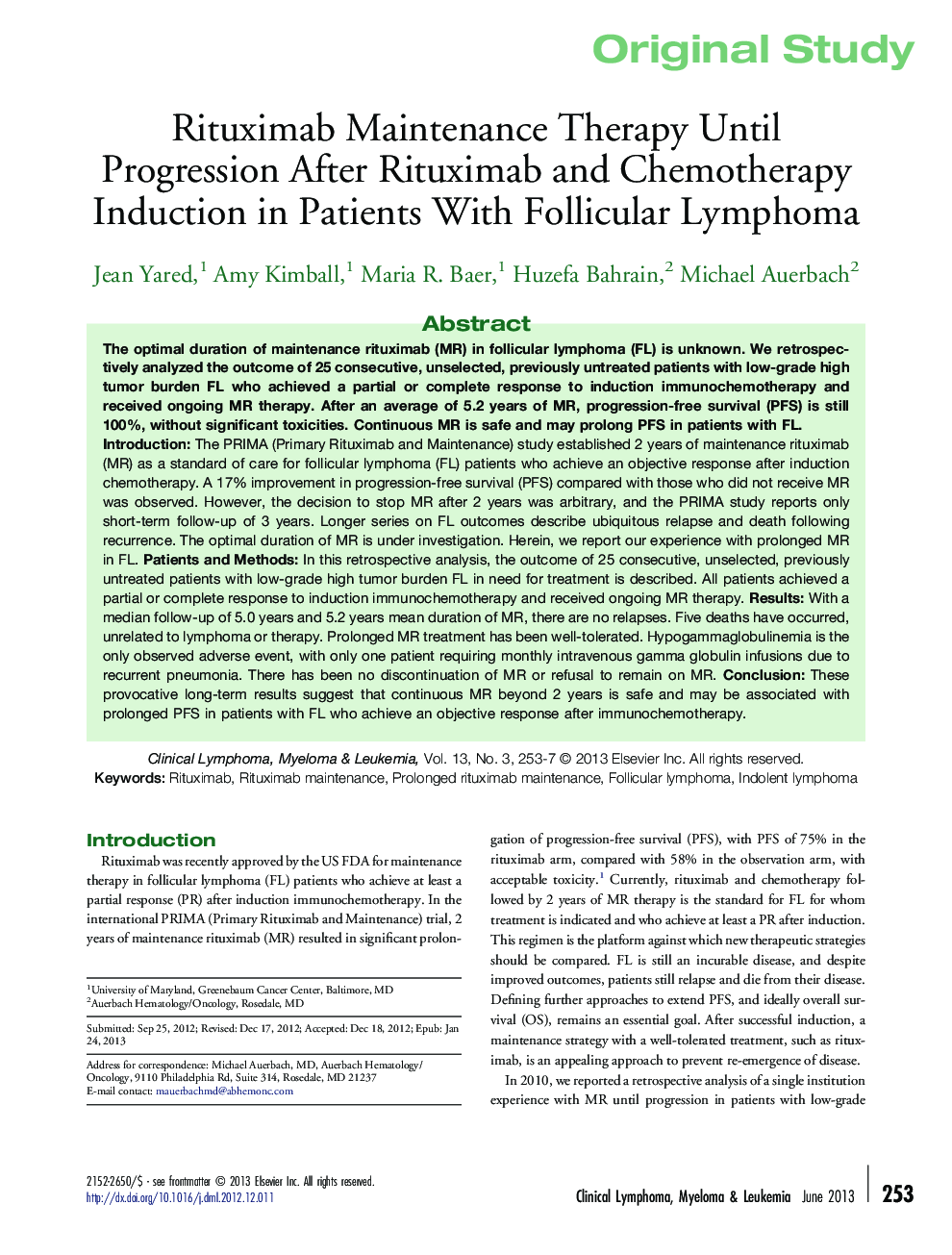| Article ID | Journal | Published Year | Pages | File Type |
|---|---|---|---|---|
| 2754782 | Clinical Lymphoma Myeloma and Leukemia | 2013 | 5 Pages |
IntroductionThe PRIMA (Primary Rituximab and Maintenance) study established 2 years of maintenance rituximab (MR) as a standard of care for follicular lymphoma (FL) patients who achieve an objective response after induction chemotherapy. A 17% improvement in progression-free survival (PFS) compared with those who did not receive MR was observed. However, the decision to stop MR after 2 years was arbitrary, and the PRIMA study reports only short-term follow-up of 3 years. Longer series on FL outcomes describe ubiquitous relapse and death following recurrence. The optimal duration of MR is under investigation. Herein, we report our experience with prolonged MR in FL.Patients and MethodsIn this retrospective analysis, the outcome of 25 consecutive, unselected, previously untreated patients with low-grade high tumor burden FL in need for treatment is described. All patients achieved a partial or complete response to induction immunochemotherapy and received ongoing MR therapy.ResultsWith a median follow-up of 5.0 years and 5.2 years mean duration of MR, there are no relapses. Five deaths have occurred, unrelated to lymphoma or therapy. Prolonged MR treatment has been well-tolerated. Hypogammaglobulinemia is the only observed adverse event, with only one patient requiring monthly intravenous gamma globulin infusions due to recurrent pneumonia. There has been no discontinuation of MR or refusal to remain on MR.ConclusionThese provocative long-term results suggest that continuous MR beyond 2 years is safe and may be associated with prolonged PFS in patients with FL who achieve an objective response after immunochemotherapy.
